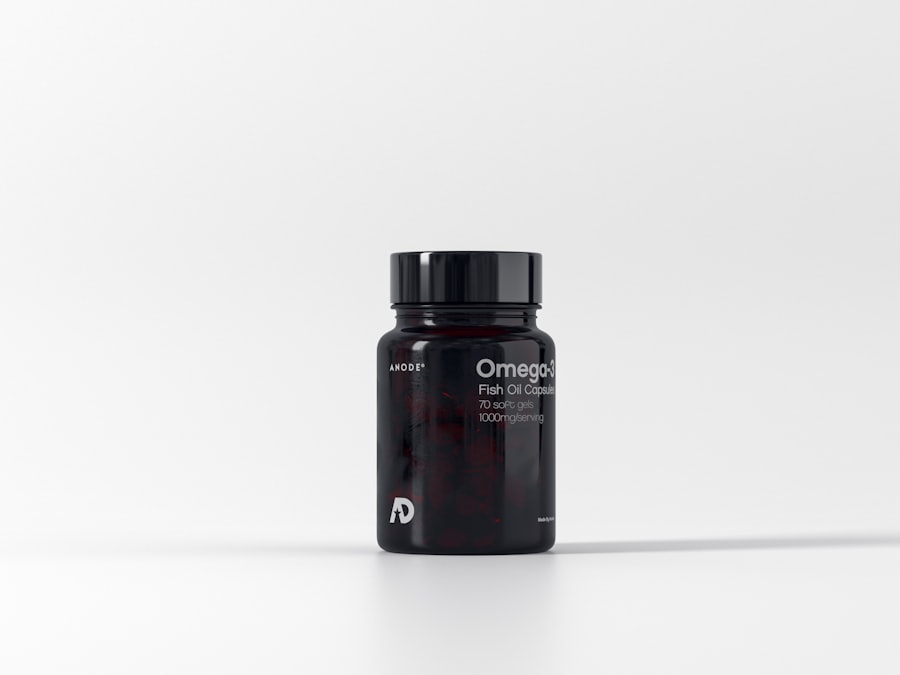Vitamin B12, also known as cobalamin, is an essential nutrient that plays a crucial role in various bodily functions, including the formation of red blood cells, DNA synthesis, and the maintenance of nerve cells. As you delve into the world of B12 supplements, it’s important to recognize that not all forms of this vitamin are created equal. Many people turn to B12 supplements to combat deficiencies, especially those following a vegan or vegetarian diet, as B12 is primarily found in animal products.
Understanding the different types of B12 supplements available can help you make informed choices about your health. When considering B12 supplementation, you may find yourself asking why it’s necessary in the first place. A deficiency in this vital vitamin can lead to a range of health issues, including fatigue, weakness, and neurological problems.
For some individuals, dietary intake alone may not suffice to meet their B12 needs, making supplementation a practical solution. As you explore your options, it’s essential to familiarize yourself with the various forms of B12 available on the market and their respective benefits and drawbacks.
Key Takeaways
- Methylcobalamin is considered the superior form of B12 due to its higher bioavailability and better retention in the body.
- Cyanocobalamin is a common but less effective form of B12, as it requires conversion in the body and may not be suitable for everyone.
- B12 supplements’ absorption and bioavailability can be influenced by factors such as age, digestive health, and the presence of other nutrients.
- Potential side effects of B12 supplements are rare but may include allergic reactions, skin rash, or mild diarrhea, and it’s important to consult a healthcare professional if any concerns arise.
- When choosing the right B12 supplement, consider factors such as form, dosage, and additional ingredients, and consult with a healthcare professional for personalized advice.
Methylcobalamin: The Superior Form of B12
Methylcobalamin is often hailed as the superior form of vitamin B12 due to its bioavailability and effectiveness in the body. This naturally occurring form of B12 is readily utilized by your cells, making it an excellent choice for supplementation. When you take methylcobalamin, your body can quickly convert it into the active coenzyme forms that are necessary for critical biochemical processes.
This means that you may experience more immediate benefits from methylcobalamin compared to other forms of B12. One of the standout features of methylcobalamin is its role in supporting neurological health. Research suggests that this form of B12 may help protect against neurodegenerative diseases and improve cognitive function.
If you’re concerned about maintaining your brain health as you age or if you’re experiencing symptoms like memory loss or cognitive decline, methylcobalamin could be a valuable addition to your supplement regimen. Its ability to cross the blood-brain barrier further enhances its effectiveness in promoting overall neurological well-being.
Cyanocobalamin: A Common but Less Effective Form of B12

Cyanocobalamin is one of the most commonly used forms of vitamin B12 in supplements and fortified foods. While it is effective in preventing and treating B12 deficiency, it is important to understand that cyanocobalamin is a synthetic form of the vitamin. Your body must convert cyanocobalamin into methylcobalamin or adenosylcobalamin before it can be utilized effectively.
This conversion process can be less efficient for some individuals, particularly those with certain health conditions or genetic variations. Despite its limitations, cyanocobalamin remains popular due to its stability and cost-effectiveness. Many people find it readily available in various forms, including tablets, injections, and nasal sprays.
However, if you are looking for a more bioavailable option that your body can use immediately, you might want to consider methylcobalamin instead. Understanding the differences between these two forms can empower you to make choices that align with your health goals.
Absorption and Bioavailability
| Metrics | Value |
|---|---|
| Absorption Rate | 80% |
| Bioavailability | 90% |
| Half-life | 4 hours |
The absorption and bioavailability of vitamin B12 are critical factors to consider when choosing a supplement. Bioavailability refers to the proportion of a nutrient that enters your bloodstream when you consume it and is made available for use by your body. In the case of B12, absorption can be influenced by several factors, including the form of the vitamin, your digestive health, and any underlying medical conditions.
For instance, individuals with gastrointestinal issues may struggle to absorb B12 effectively from food or supplements. This is where sublingual tablets or injections can come into play, as they bypass the digestive system and deliver the vitamin directly into your bloodstream.
Potential Side Effects and Safety Concerns
While vitamin B12 is generally considered safe and well-tolerated, it’s essential to be aware of potential side effects and safety concerns associated with supplementation. Most people do not experience adverse effects when taking B12 within recommended dosages; however, some individuals may encounter mild side effects such as headaches, dizziness, or gastrointestinal discomfort. If you notice any unusual symptoms after starting a B12 supplement, it’s wise to consult with a healthcare provider.
Another consideration is the potential for interactions with medications or other supplements you may be taking. Certain medications, such as proton pump inhibitors or metformin, can affect B12 absorption and may require monitoring if you are supplementing with this vitamin. Additionally, while high doses of B12 are generally considered safe due to its water-soluble nature, it’s still important to adhere to recommended dosages to avoid any unnecessary complications.
Choosing the Right B12 Supplement for You

Selecting the right B12 supplement involves considering several factors tailored to your individual needs and lifestyle. First and foremost, assess your dietary habits and whether you may be at risk for a deficiency. If you follow a vegan or vegetarian diet or have specific health conditions that affect nutrient absorption, you may benefit from higher doses or more bioavailable forms like methylcobalamin.
Next, consider how you prefer to take supplements. Some people prefer tablets or capsules, while others may opt for sublingual forms or injections for faster absorption. Your personal preferences and lifestyle will play a significant role in determining which format works best for you.
Additionally, always check for third-party testing or certifications on any supplement brand you choose to ensure quality and safety.
When comparing methylcobalamin and cyanocobalamin, it’s essential to weigh their respective benefits and drawbacks carefully. Methylcobalamin stands out for its superior bioavailability and immediate usability by your body. It is particularly beneficial for those concerned about neurological health or those who have difficulty converting other forms of B12 into active forms.
On the other hand, cyanocobalamin is widely available and often more affordable than methylcobalamin. While it is effective in preventing deficiency, its conversion process may not be ideal for everyone. If you are considering supplementation but are unsure which form to choose, evaluating your health status and consulting with a healthcare professional can provide clarity on which option aligns best with your needs.
The Importance of B12 for Overall Health
Vitamin B12 plays an integral role in maintaining overall health beyond just preventing deficiency. It is essential for energy production, as it helps convert food into glucose that your body uses for fuel.
Moreover, adequate levels of B12 are crucial for cardiovascular health as they help reduce homocysteine levels in the blood—a factor associated with heart disease when elevated. By ensuring that you have sufficient B12 in your system, you are not only supporting your energy levels but also contributing positively to your heart health and mental clarity.
Recommended Dosages for B12 Supplementation
Determining the appropriate dosage of vitamin B12 can vary based on individual needs and circumstances. The recommended dietary allowance (RDA) for adults is typically around 2.4 micrograms per day; however, those with specific health conditions or dietary restrictions may require higher doses. For instance, individuals with pernicious anemia or those who have undergone gastric surgery may need significantly more B12 than the average person.
When starting supplementation, it’s wise to begin with lower doses and gradually increase as needed while monitoring how your body responds. Consulting with a healthcare professional can provide personalized recommendations based on your unique health profile and lifestyle factors.
Tips for Maximizing the Benefits of B12 Supplements
To maximize the benefits of your B12 supplementation, consider incorporating certain lifestyle practices that enhance absorption and utilization. First and foremost, ensure that you are taking your supplement consistently—whether daily or as directed by a healthcare provider—to maintain adequate levels in your system. Additionally, pairing your B12 supplement with foods rich in intrinsic factor—such as animal proteins—can aid absorption if you’re using oral forms.
Staying hydrated and maintaining a balanced diet rich in other essential nutrients will also support overall health and enhance the effectiveness of your supplementation efforts.
Consulting with a Healthcare Professional
Before embarking on any supplementation journey, consulting with a healthcare professional is crucial for ensuring safety and efficacy tailored to your individual needs. A healthcare provider can assess your current health status through blood tests to determine if you have a deficiency or if supplementation is necessary. Moreover, they can guide you through selecting the right form and dosage of B12 based on your lifestyle factors and any medications you may be taking.
By working closely with a healthcare professional, you can make informed decisions that support your overall well-being while minimizing potential risks associated with supplementation.
When considering the best form of B12 supplement, it’s essential to understand the different types available and their benefits. For seniors, choosing the right supplement can significantly impact overall health and well-being. An article that delves into this topic can be found on Explore Senior Health, which provides valuable insights into the various forms of B12 supplements and their effectiveness. For more detailed information, you can read the related article on Explore Senior Health. This resource offers comprehensive guidance on selecting the most suitable B12 supplement to meet individual health needs.
💰 The Secret History of the Dollar: How Oil Replaced Gold (The Petrodollar Mystery)
FAQs
What is B12 and why is it important?
B12, also known as cobalamin, is a water-soluble vitamin that plays a crucial role in the formation of red blood cells, neurological function, and DNA synthesis. It is essential for maintaining a healthy nervous system and preventing anemia.
What are the different forms of B12 supplements?
The most common forms of B12 supplements include cyanocobalamin, methylcobalamin, hydroxocobalamin, and adenosylcobalamin. Each form has its own unique properties and benefits.
What is the best form of B12 supplement?
The best form of B12 supplement depends on individual needs and preferences. Cyanocobalamin is the most stable and widely available form, while methylcobalamin is considered to be more bioavailable and better retained in the body. Hydroxocobalamin and adenosylcobalamin are also effective forms of B12.
How should I choose the right B12 supplement for me?
It is important to consider factors such as absorption rate, dosage, and any specific health conditions when choosing a B12 supplement. Consulting with a healthcare professional can help determine the best form of B12 supplement for individual needs.
What are the sources of B12 in food?
B12 is naturally found in animal products such as meat, fish, eggs, and dairy. Some fortified foods, such as breakfast cereals and plant-based milk alternatives, also contain B12. However, individuals following a vegan or vegetarian diet may need to rely on B12 supplements to meet their daily requirements.
